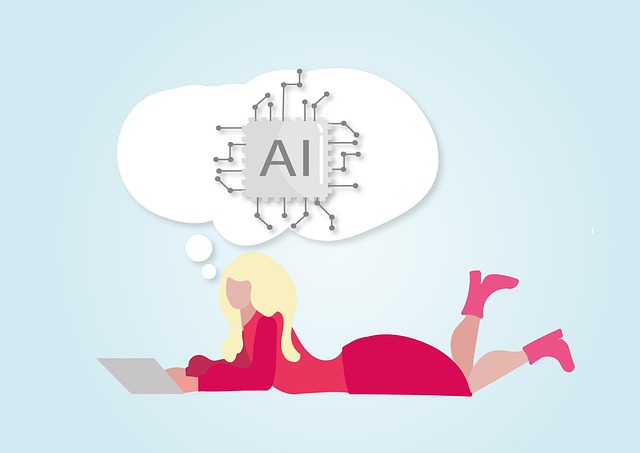AI chatbots have revolutionized human-computer interaction by offering natural and engaging conversation experiences powered by artificial intelligence. Utilizing sophisticated algorithms and vast datasets through Natural Language Processing (NLP), they interpret user intent and generate human-like text. Continuous learning allows these intelligent agents to evolve, handle complex conversations, and provide personalized assistance 24/7, making them indispensable across sectors like retail, healthcare, and customer service for enhanced operations and customer experiences.
In today’s digital era, AI chatbots have emerged as game-changers across various industries. Understanding AI chatbots starts with grasping their essence: scripted tools designed to mimic human conversation through pre-programmed responses and algorithms. This article delves into the basics of AI chatbots, exploring how they work behind the scenes and highlighting their multifaceted benefits and applications. From customer service to healthcare, discover how these scripted conversational agents are revolutionizing interactions and enhancing user experiences.
- Understanding AI Chatbots: The Basics
- How Scripted Chatbots Work: Behind the Scenes
- Benefits and Applications of Scripted Chatbots in Various Industries
Understanding AI Chatbots: The Basics
AI chatbots have transformed the way we interact with technology, offering a more natural and engaging conversation experience. At their core, these chatbots are powered by artificial intelligence, specifically designed to understand and generate human-like text based on user inputs. The fundamentals of AI chatbot operation revolve around sophisticated algorithms that learn from vast datasets, enabling them to interpret and respond to a wide array of user queries.
These intelligent agents utilize natural language processing (NLP) techniques to decipher the intent behind user messages, allowing them to provide contextually relevant and meaningful responses. By continuously learning from each interaction, AI chatbots evolve, becoming more adept at handling complex conversations and offering personalized assistance. This dynamic nature ensures that they remain an indispensable tool across various sectors, revolutionizing customer service, information retrieval, and everyday digital interactions.
How Scripted Chatbots Work: Behind the Scenes
AI chatbots, or scripted chatbots, operate through pre-written scripts and algorithms designed to simulate human conversation. Behind the scenes, these chatbots use Natural Language Processing (NLP) to interpret user inputs, allowing them to understand context and generate appropriate responses. The process begins when a user sends a message; the chatbot’s NLP engine analyzes the text, identifying keywords and sentiment. Based on this analysis, the AI accesses its vast database of pre-programmed responses, selecting the most fitting reply.
This behind-the-scenes magic ensures that every interaction feels natural and human-like. The algorithms are trained on massive datasets, learning from millions of conversations to improve their accuracy and adaptability over time. As a result, scripted chatbots can handle a wide range of user queries, providing quick and efficient support while enhancing customer experience in various industries.
Benefits and Applications of Scripted Chatbots in Various Industries
Scripted chatbots offer a multitude of benefits across various industries, leveraging advanced AI chatbot technologies to streamline operations and enhance customer experiences. One of their key advantages is 24/7 availability; these bots can handle queries at any time, ensuring immediate responses and improving customer satisfaction. Additionally, they are highly scalable, enabling businesses to manage high volumes of interactions without compromising quality or speed.
Their applications span diverse sectors. In retail, for instance, scripted chatbots assist customers in product searches, answer FAQs, and even facilitate sales by offering personalized recommendations. Healthcare sees them playing a vital role in patient engagement, providing basic medical advice, scheduling appointments, and gathering preliminary health information. Moreover, these bots can be employed in customer service to handle routine inquiries, freeing up human agents for more complex issues.
AI chatbots are transforming interactions across various industries, offering tailored assistance and enhancing user experiences. By leveraging pre-scripted responses, these chatbots provide efficient, consistent support while reducing operational costs. Their versatility allows businesses to personalize customer engagement, making them a valuable tool for improving accessibility and satisfaction. As AI continues to evolve, scripted chatbots will undoubtedly play a pivotal role in shaping the future of human-computer interaction.
